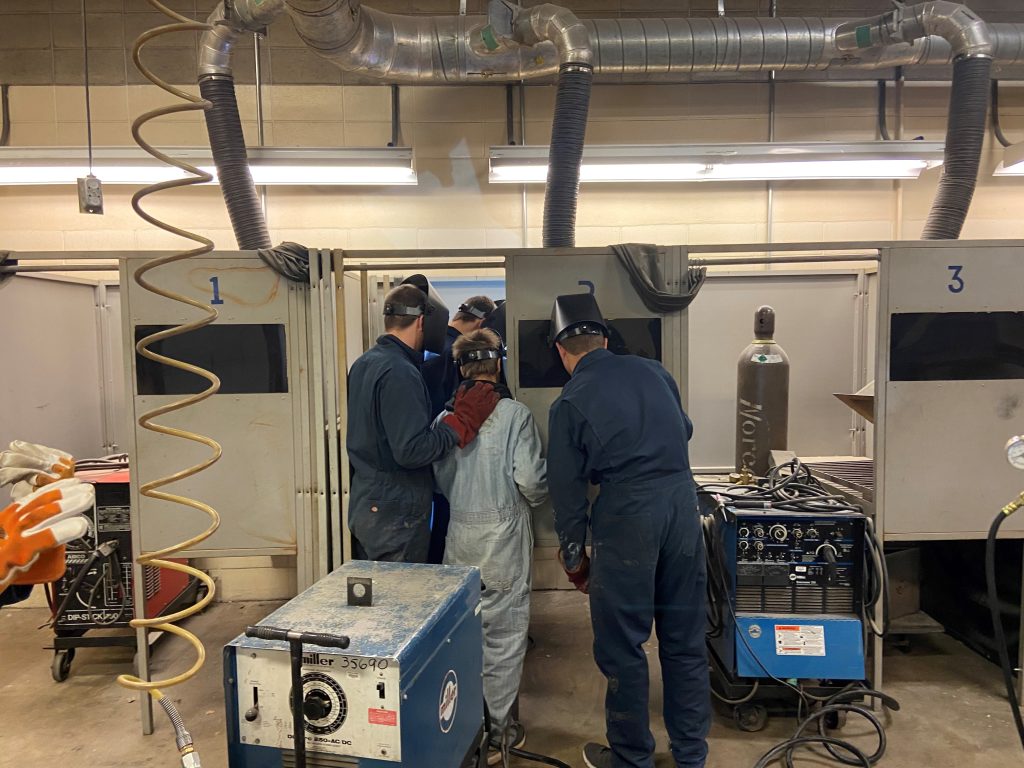CTE programs transform futures for incarcerated youth


Since 2020, LCSC has collaborated with the Idaho Department of Juvenile Corrections (IDJC) to expand access to CTE programs for its residents. This initiative provides hands-on learning opportunities that can lead to real-world skills and better outcomes for incarcerated youth.
“Many of these students previously believed that education was not an option for them,” said Liz Weldy, a transition coordinator at LCSC. “Now, they’re earning dual credit or college credit, which opens doors they didn’t know were possible.”
The program began when IDJC reached out to LCSC to discuss developing more CTE opportunities for its residents. Initial discussions revealed significant barriers. Many academic institutions declined to participate due to these challenges, but LCSC was determined to find a solution.
“Incarcerated students face strict safety protocols; they can’t communicate with anyone outside their facility except for parents during visits,” said Weldy. “That means a traditional online classroom wouldn’t work.”
LCSC developed a secure instance of the online learning platform Canvas, customizing it to lock down certain features to meet safety requirements. This approach allows students to access course materials while adhering to the necessary restrictions.
Education reduces recidivism rates, and we hope to see our efforts reflected in lower incarceration rates in the future.
Liz Weldy, transition coordinator, LCSC
Initially, LCSC offered courses in hospitality, basic electricity and heating, ventilation and air conditioning (HVAC) principles. A key feature of CTE classes is their hands-on nature, and classrooms often contain professional-grade equipment. To ensure students still had access to applied learning, Weldy had to get creative with the resources available at IDJC’s three facilities. For example, at the St. Anthony facility, students gain hands-on experience working in the Canteen, an onsite restaurant for the facility’s staff. They can also earn internship credits, aligning their practical experience with industry standards.
“They’re managing real-world tasks, from food preparation to customer service, which builds essential soft skills,” said Weldy.
The program also emphasizes support during students’ transitions back into society. Each student receives an admission letter upon enrolling, along with a CTE T-shirt to foster pride.
Looking ahead, Weldy envisions further program growth.
“We’re actively seeking grant opportunities to expand offerings like welding and other trades,” said Weldy. “The goal is to align our programs with workforce needs in the community.”
The impact of these programs is already evident.
“We’ve seen students who previously disengaged from education start to thrive,” said Weldy. “One student wrote to his parents, saying, ‘Getting my high school diploma at 16 instead of a GED was a huge accomplishment and before taking these college courses, I had decided that was good enough for me. Now, I want to pursue more! And I’m excited about doing so.’”
Feedback from educators indicates a strong demand for more CTE classes. In response, LCSC is exploring additional course offerings and certifications.
“Educators see how these programs positively influence student behavior and academic performance, and there’s interest in expanding into healthcare and science fields,” said Weldy. “Education reduces recidivism rates, and we hope to see our efforts reflected in lower incarceration rates in the future.”
 Official Government Website
Official Government Website